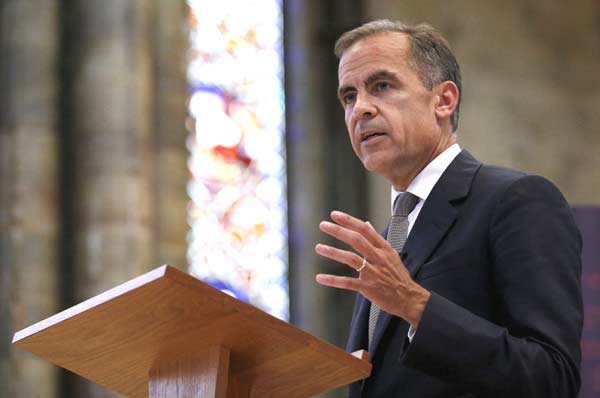Distraction of Greece aside, is all well with the world economy?
(Agencies) Updated: 2015-07-19 20:20
CAVEAT EMPTOR
So are Yellen and Carney right to be signalling at least an end to near-universal easing?
Clearly they believe that domestic growth, job creation and inflation are on trend to warrant it. But their views are couched in caution.
Carney, for example, has said that interest rates will rise only gradually from their record low of 0.5 percent, and to lower levels than in the past.
Meanwhile, Yellen told Congress that risks remain, notably from spillover from the Greek and Chinese crises. But she added:
"The importance of the initial step to raise the federal funds rate target should not be overemphasised."
Paul Mortimer-Lee of BNP Paribas noted that Yellen expects the path of rate normalisation to be "gradual", steepening or easing depending on how data pans out.
Part of the reason for this caution is that economic data has not been universally positive.
Britain, for example, has seen prices bump close to deflation and the jobless rate rise for the first time in more than two years, although it is in much better shape than it was.
In the United States, manufacturing is expanding but is highly vulnerable to a strengthening dollar. Retail sales fell in June and May was revised downwards, real weekly wage earnings have slipped lately, and inflation remains weak at just 0.1 percent year-on-year.
It still may be growing at around 3 percent, though.
- Greek faces tough conditions under deal with euro zone
- Agreement on Greece debt deal reached at euro zone summit
- Industrial Bank lowers interest rates for mortgage loan
- Reserve ratio or interest rates cuts more likely in June: analysts
- Central bank slashes interest rates again
- China cuts interest rates to bolster real economy







